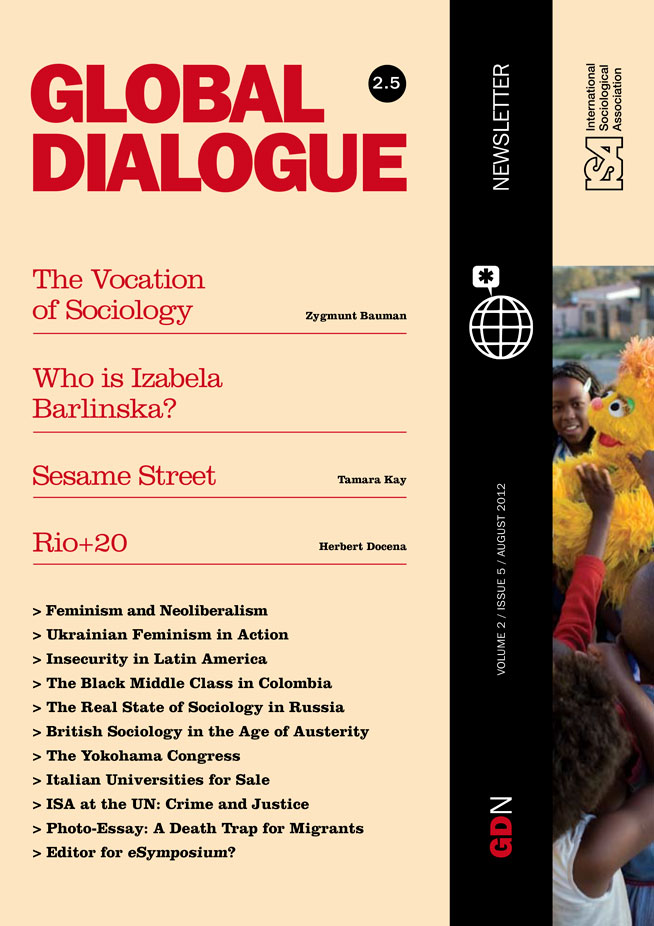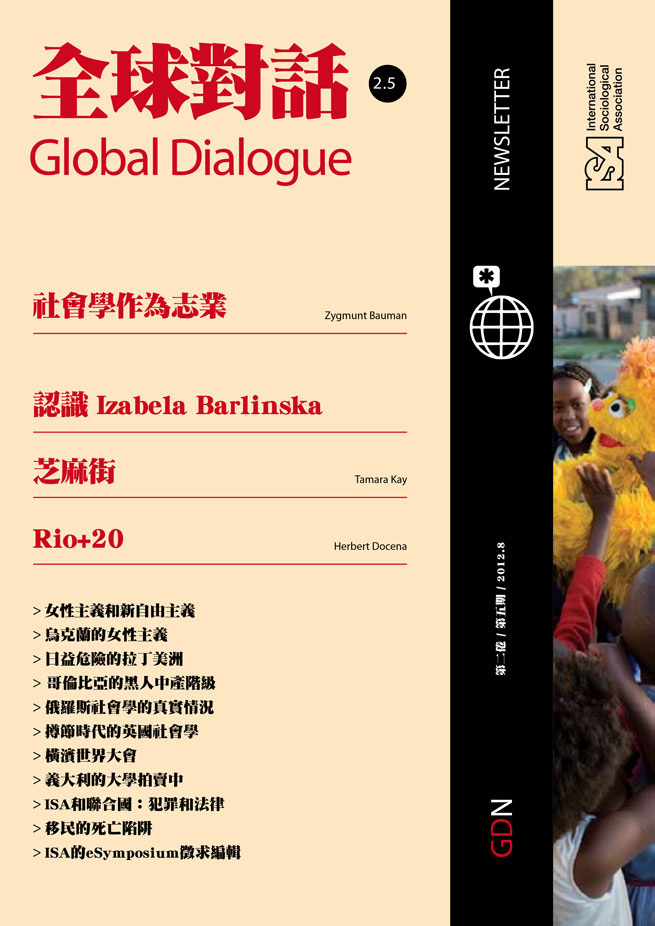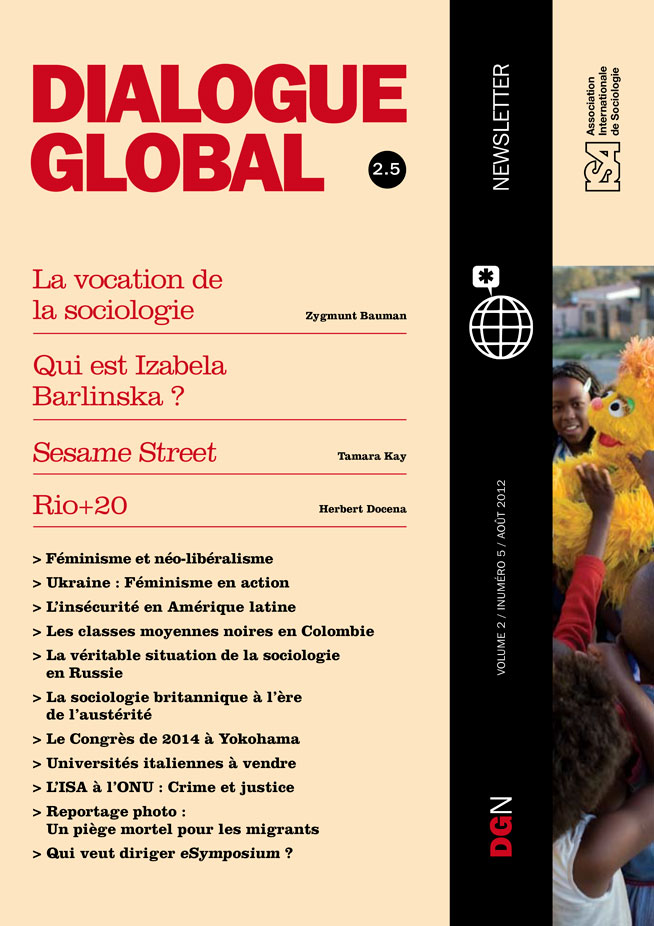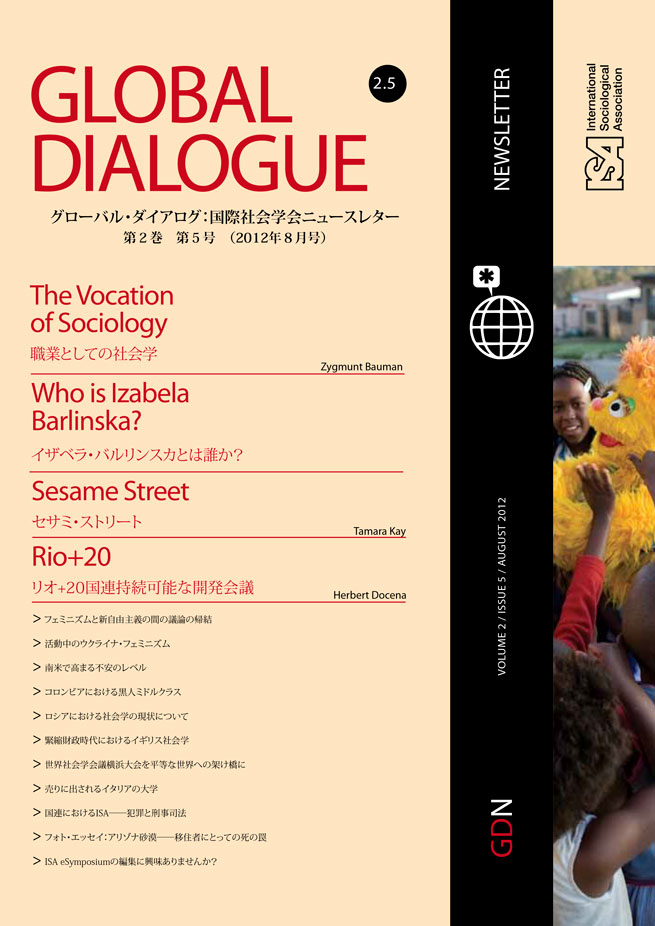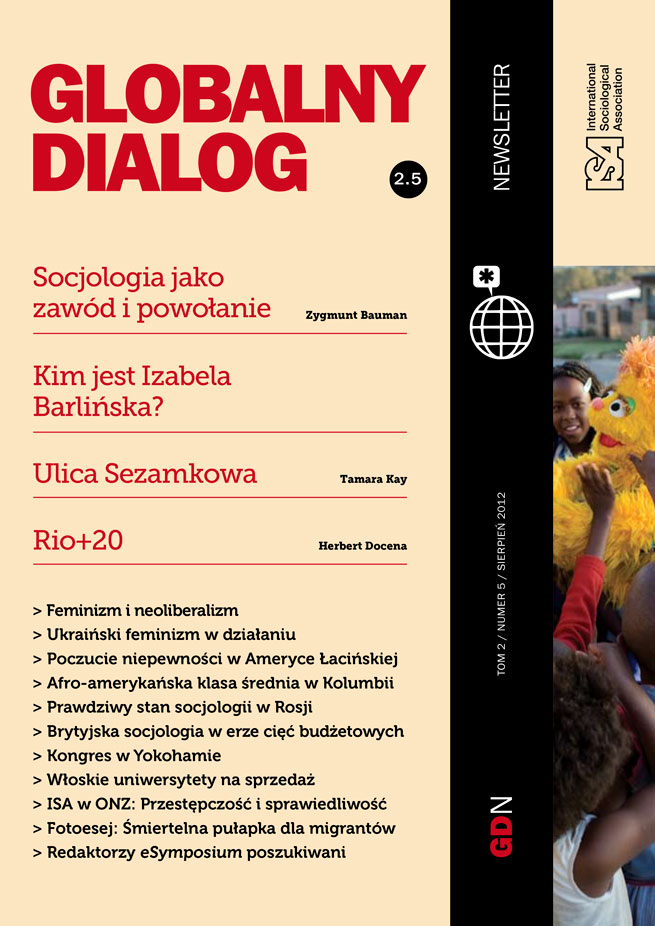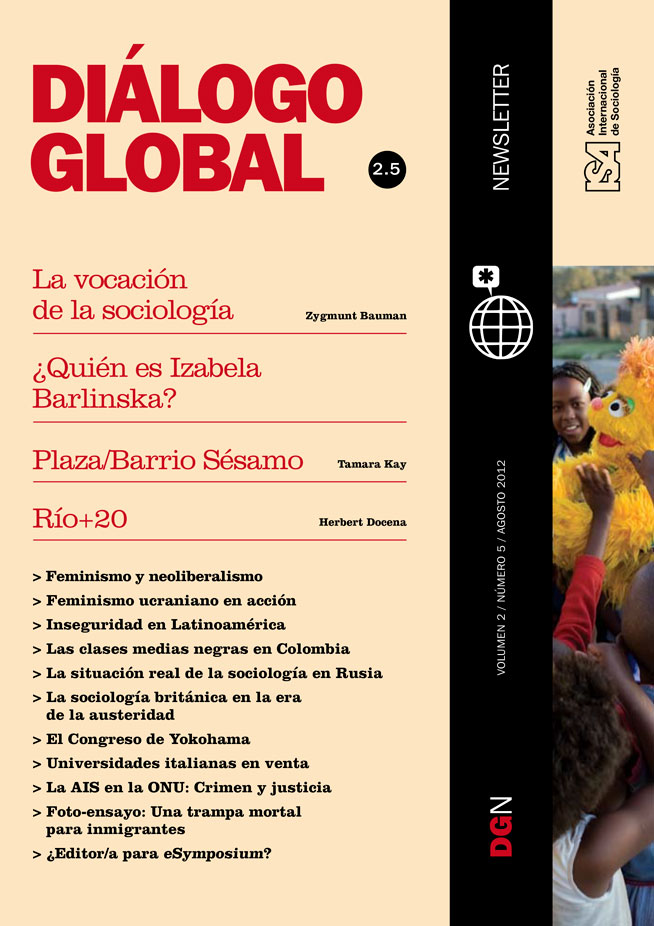Italian Universities for Sale

July 13, 2012
“The Italian University is hardly surviving. It is in a condition of disease and growing marginalization, which can find little comparison in our contemporary history. Economic resources for the institutional functioning of one of the oldest academia in the world were drastically reduced well before the present global crisis manifested itself, and even though the Italian university had a quite poor financing to start with, as compared to other industrialized countries. The humanities and a large part of the social sciences have been systematically underprivileged in order to promote other disciplines, which are considered to be more useful for economic growth and the market. Such a trend links us to Europe and to other countries. The university courses are required to be useful in terms of market value – otherwise they cannot be offered because they are economically unsustainable.” The quote is from the opening to a document entitled L’Università che vogliamo (The University we want) written by two Italian professors, Piero Bevilacqua and Angelo D’Orsi, and electronically signed by hundreds of Italian professors, researchers and “precari” i.e., untenured intellectual workers, mostly in post-doctoral temporary positions.
In 2010 the precari in the Italian università numbered 126,188, occupying different roles: 41,349 contract professors; 24,934 MD trainees; 23,996 tutors; 17,942 research assistants. Overall in 2010 there are 22,000 less precari than in 2008[1], indicating a tendency toward disaffiliation and disengagement from the Italian University, which is perceived as a cul-de-sac, with no future other than progressive privatization.
The existence of a visible degree of corruption in the university – which is as undeniable as it is shameful – has been used as an argument to attack and dismantle the whole public system of higher education, with a series of unfortunate laws and regulations, the latest being the infamous Gelmini Reform, named after its originator, the Minister of Education, Universities and Research in the Berlusconi government.
Born in the shadow of deadly budgetary cuts and a painful halt to career progression, such a reform gives all power to the Chancellors and Full Professors – by eliminating democratic organs such as the Faculty Council (where, until this year, all tenured professors and researchers had a say in the decision-making processes) and by diminishing the role of the Academic Senate.
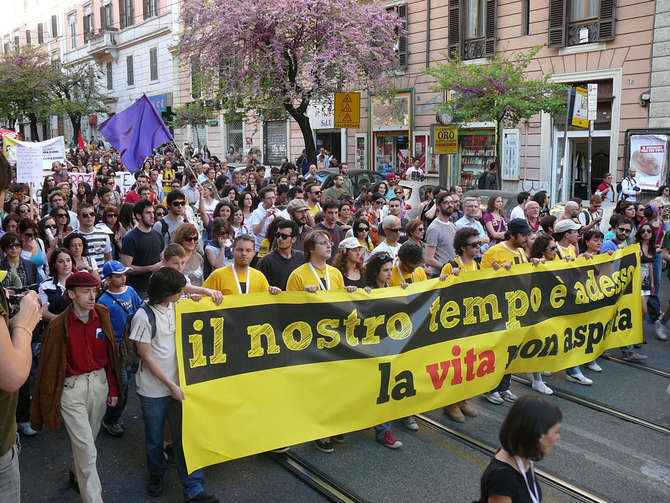
Another vital blow to the Italian university system would come from a provision in itinere: the abolition of the legal value of the state degrees, which would discourage students from enrolling in the system – students who are already struggling with unprecedented increases in tuition fees. If the law is approved by Parliament, the degrees obtained in serious, selective, competitive state institutions will be no different than those obtained from any private, online, ad hoc university.
The early student movements of 1968-1977 saw as their protagonists mostly students, commuting students, worker-students, and focused on their needs, but in a second phase during the 1990s the student movement La Pantera (The Panther) started to criticize the privatization of the university, and the education system more generally, for making the production of knowledge subservient to the business world. New social movements sprouted after the so-called Berlinguer Reform, passed in 2000 by a “progressive” government, which increased the financial autonomy of the university by lowering state support to higher education and research institutions, thereby pushing universities into an organic relation with the business world.
The “Reform” inaugurated a decade of struggles – starting with the occupation of Rome University La Sapienza in 2001 – showing how neoliberal policies did not change with the color of the Ministry. The privatization of the Public University was carried out with equal urgency by different types of governments, both those politically positioned in the Center-Left and those in the Center-Right. Budgetary cuts caused the degradation of students services, the shrinking of grants, scholarships and other forms of financial support, and skyrocketing tuition fees. Together these caused protests and turmoil among university students and the flowering of collectives. In 2008 a widespread mobilization called L’Onda (The Wave) saw associate and full professors as well as researchers refusing to teach. Finally, the movement also addressed the issues of untenured intellectual workers of the University: the precari – the poorly paid labor force in terms of teaching jobs, what we call the lumpen-ricercariat, that is the lab assistants, lecturers, translators, readers, assistants who constitute today a new social subject and collective form of agency.
Many today foresee a “second 1968,” meaning a successful mass movement. Instead what may happen is that the university protests could hook up more organically with other social movements against the crisis, movements of the unemployed, the workers who have lost their jobs, the indignados, who say no to neoliberalism and its recipes of privatization and forced growth. Such a prospect of connecting different issues, having the same root problem, is corroborated by the involvement of many students, workers, researchers and teachers in a larger movement of a precariat, especially after the national demonstration of March 30 (2012) in Rome and in view of the international mobilization of Frankfurt (May 16-19).
For updates on protests, the following website can be consulted: http://www.ateneinrivolta.org/ (Universities in Revolt). Here you can access documents, proposals, meeting reports, videos, and information. There is a strong emphasis on gender issues since women are discriminated against within the university in terms of career, under-representation in academic positions and in higher levels of administration. The government’s decision to make the infamous budgetary cut of 20 billion euros for state universities hits mostly women – who are overrepresented among precarious workers. It damages, particularly, the southern colleges, and the marginalized subjects, such as the GLBTT people.
[1] Francesca Ruocco, “Il lavoro precario in Università” Pp.56-61 in Inchiesta n. 174, ottobre-dicembre 2011. Bari: Edizioni Dedalo.
Laura Corradi, University of Calabria, Italy


